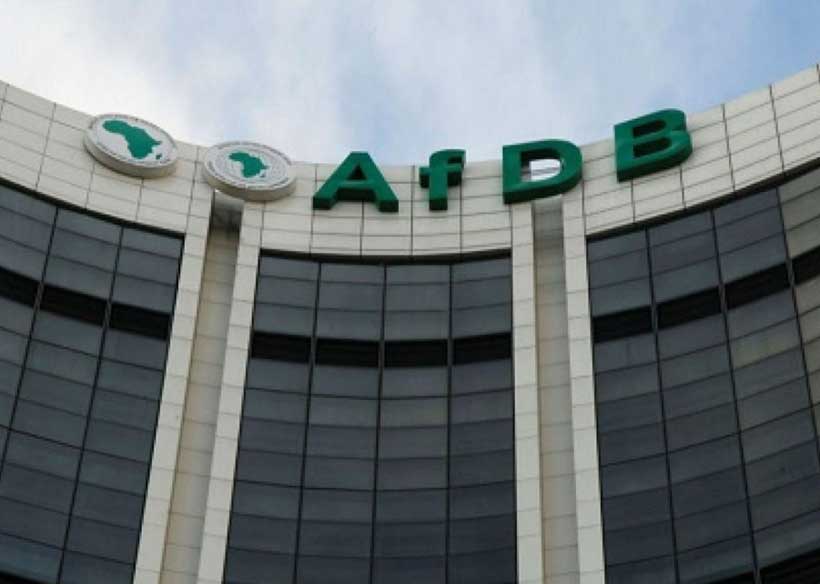AfDB Launches 2025 Burkina Faso Focus Report: A Call to Leverage National Capital
The 2025 edition of the Country Focus Report is titled: “Making Burkina Faso's Capital Work Better for its Development.”

- Country:
- Burkina Faso
On July 18, 2025, the African Development Bank (AfDB) officially launched the 2025 Country Focus Report for Burkina Faso, a national adaptation of its flagship African Economic Outlook, during a high-level ceremony in Ouagadougou. The session, held virtually and in-person, was attended by over 80 participants from across government, the private sector, academia, and international development institutions.
The event was chaired by Souleymane Nabolé, Technical Advisor to the Minister of Economy and Finance, and Daniel Ndoye, AfDB Country Manager for Burkina Faso. The event's importance was further emphasized by a video message from Professor Kevin Urama, AfDB's Chief Economist and Vice President for Economic Governance and Knowledge Management.
A Report Framing Capital as a Catalyst for Development
The 2025 edition of the Country Focus Report is titled: “Making Burkina Faso's Capital Work Better for its Development.”
It provides an in-depth analysis of Burkina Faso’s macroeconomic performance, resilience in the face of security and humanitarian crises, and identifies strategic pathways for sustainable transformation. With a sharpened lens on national capital—including natural, human, entrepreneurial, and financial resources—the report emphasizes the country’s untapped potential and its capacity to close persistent financing gaps.
Despite external shocks, Burkina Faso’s economy posted an estimated 5% growth in 2024, reflecting considerable progress. The government sees this growth as an opportunity to rethink its economic model, leveraging existing forms of capital to amplify social impact and reduce poverty.
Strategic Recommendations to Bridge the Financing Gap
To ensure sustainable and inclusive development, the report outlines multi-pronged recommendations, including:
-
Agricultural transformation: Enhancing agricultural productivity and scaling agro-industrial value chains to strengthen rural incomes and food security.
-
Resource mobilization: Improving tax and customs systems, boosting mining revenues, and cracking down on illicit financial flows.
-
Social sector investment: Broadening access to education, health care, and vocational training to build a competitive, skilled workforce.
-
Institutional reform: Bolstering the capacities of state oversight bodies, modernizing the judicial system, and enhancing forest and environmental governance.
These measures, the report argues, will enhance domestic resource mobilization and reduce dependency on external aid—a key consideration in the current geopolitical and financial climate.
National and Regional Endorsements
Souleymane Nabolé, speaking on behalf of the government, expressed strong alignment with the report’s findings, noting:
“To have a significant impact on the social front, we need to think about how the transformation of the Burkinabe economy can be achieved by drawing on human, natural, and financial resources, socio-economic infrastructure, and governance.”
His remarks were echoed by Abdoulaye Diop, President of the West African Economic and Monetary Union (UEMOA) Commission, who commended the AfDB’s holistic and practical approach. He lauded Burkina Faso’s exceptional performance in the region:
“Burkina Faso is currently the best performer in our Union in domestic resource mobilisation, with a tax ratio close to 19%. It is also one of the countries most committed to implementing Union legislation.”
Diop emphasized that Burkina Faso’s commitment deserves greater recognition and support from its development partners.
Calls to Rethink Capital Utilization and Governance
Expert-led presentations during the session underlined the need to:
-
Reallocate domestic resources effectively amid declining foreign aid,
-
Optimize human capital development as a long-term engine of growth,
-
Maximize the economic and social returns from mineral exploitation, and
-
Institutionalize good governance across all forms of capital.
These insights resonated strongly with the participants, generating dynamic discussions about synergies between AfDB’s recommendations and national development strategies.
A Shared Vision and Strengthened Partnership
Closing the session, Daniel Ndoye praised the event's quality and the active engagement of participants:
“We commend the country’s performance, particularly in terms of resource mobilization. The alignment between the Bank’s strategic recommendations and national policies is encouraging.”
Nabolé reaffirmed the government’s satisfaction with the enduring partnership with the African Development Bank, expressing optimism about future collaboration focused on unlocking Burkina Faso’s latent economic potential.
Outlook: Towards Resilient and Inclusive Growth
The 2025 Country Focus Report marks a milestone in the evolving economic dialogue between Burkina Faso and its partners. By placing capital productivity, governance, and resilience at the center of national planning, the AfDB aims to equip decision-makers with actionable insights to steer the country toward long-term stability and prosperity.
As Burkina Faso continues to confront complex security and climate challenges, this report underscores the importance of smart policies and strategic investments that empower the nation to turn its capital into real engines of development.










